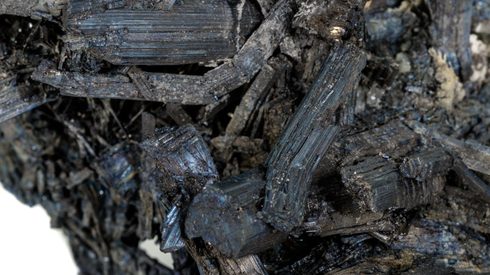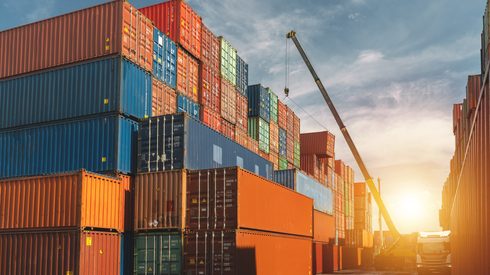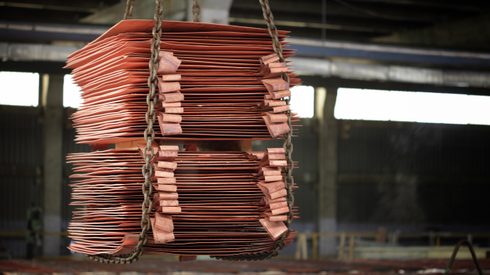Freeport McMoRan’s decision to attempt to sell all of its cobalt basis London Metal Exchange prices from January 2014 paves the way for discussions about pricing mechanisms in China this week at the Antaike cobalt conference.
While interest in the LME contract is growing, the cobalt market, much of which has relied on Metal Bulletin’s twice-weekly price assessments to settle its long-term contracts, remains divided on pricing mechanisms.
Freeport, which as a copper producer has expertise in hedging and fixing prices on an exchange, said it was drawn to the LME by the increased liquidity of the cobalt contract and the fact it assists in providing greater risk mitigation potential “for all parts of the cobalt supply chain”.
In October, traded volumes reached 1,197 lots, up from 507 in the corresponding month of 2012. Stocks stood at 533 tonnes at the end of October, having risen steadily since its 2010 launch.
Producer interest
At the moment, only Brazilian producer Votorantim prices contracts on this basis, Metal Bulletin understands.
Although many other producers have considered pricing on this basis, and several have listed their material for delivery on to the LME, Votorantim’s decision some years ago failed to immediately lead others to pricing basis the exchange.
But as volumes pick up, other producers questioned by Metal Bulletin have expressed increased interest in offering at least some of their material to some of their customers on an LME-basis.
Many market participants, including several consumers and some producers, expect to continue pricing on a traditional basis, however.
At least one producer has confirmed that it will only be offering basis Metal Bulletin for 2014 contracts.
Freeport’s customers
Arizona-based Freeport’s customers will be considering their options.
Do they want to price their cobalt hydroxide or product purchases on the LME? What will their own customers say? What power do they have to negotiate with or resist Freeport?
Freeport is a major player in cobalt, and after purchasing OMG’s cobalt operations earlier this year, it is the most diversified operator in the market.
Meanwhile, concerns about supplies of intermediates, like hydroxide, which Freeport produces at its Tenke operation in the DRC, are rife.
Customers know that, with strong intermediate demand expected from China in 2014, Freeport is in a good negotiating position this season.
“Freeport’s customers will be more concerned about securing supplies than about whether they’re priced basis the LME,” one trader said this week.
But as much of the supply chain is linked to Metal Bulletin pricing, some consumers have told Metal Bulletin that they will resist an immediate move to LME-basis pricing.
Freeport has a wide variety of customers, and some will be more able and likely to resist than others, market sources said.
“Our customers and their customers are linked to Metal Bulletin, so we won’t be switching,” one buyer said last month, adding that for the moment he believed he had the power to resist.
Other sources said Freeport may struggle to convince all of its customers to move on to LME basis pricing from the planned date of January 1.
Convincing customers of the benefits of adopting LME-basis pricing is just one of the obstacles that Freeport will now be looking to manage, sources said.
Unlike Votorantim, Freeport is unable to deliver its cobalt production on to the LME, meaning its short futures positions could potentially leave it exposed, traders said.
“If the market is squeezed, Freeport can’t deliver into it, as they don’t have the LME deliverable material,” one trader said.
“They’ll be short LME in theory with a non-LME deliverable material: it could be interesting.”
At the same time, though, as a major supplier of copper concentrates, Freeport is well accustomed to managing price risk in non-LME deliverable material that is priced on the exchange.
LME obstacles
The LME cobalt contract itself has faced various obstacles and criticism since its launch, with trading sources pointing to a lack of liquidity, high levels of volatility, and consumers’ reluctance to accept it.
Some have also questioned how trading volumes across all LME contracts are calculated.
Contract growth
Still, hedging opportunities and the increased volumes on the LME have convinced the New York-listed company of the LME’s merits.
Several respected industry sources, such as Jinchuan’s US agent Derek Benham, expect acceptance of the LME contract to grow, and like Freeport many aim to take advantage of hedging opportunities if liquidity increases.
Some sources say the contract is bound to grow because of the global oversupply of cobalt metal that is expected to set in over the next few years.
With market participants preparing for the Antaike conference this week in China, pricing mechanisms will be a hot topic of discussion.
Fleur Ritzema
fritzema@metalbulletin.com
Twitter: FleurRitzema_MB






